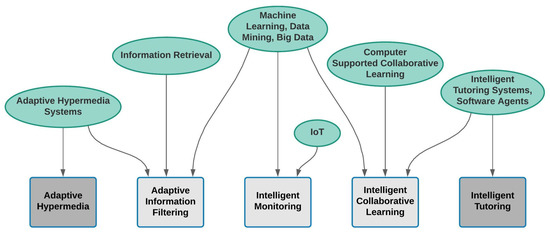What Does Bioinformatics Tutor Mean?
What Does Bioinformatics Tutor Mean?
Blog Article
The Ultimate Guide To Bioinformatics Tutor
Table of ContentsBioinformatics Tutor Fundamentals ExplainedBioinformatics Tutor - QuestionsThe Basic Principles Of Bioinformatics Tutor A Biased View of Bioinformatics TutorAll About Bioinformatics Tutor
Of the total participants associated with the training, 80% were students from public greater education and learning institutions, while the continuing to be 20% came from private institutions. To qualify for a certification of involvement, trainees were needed to go to at the very least 90% of the total training hours. As an outcome of this requirement, an excellent 95% of the participants effectively acquired their certificates, having not only fulfilled the minimum participation criteria but also finished all designated activities throughout the training.
Throughout the height of the COVID-19 pandemic, specifically between June and August 2020, the job group was tasked with organizing specialized training in bioinformatics. This training was especially intended at trainees from the research team Core for Research study in Applied Computer at the Federal College of Pará (UFRA) The adaptation to remote learning platforms due to the pandemic created a chance to discover brand-new teaching techniques and electronic devices that improved both reach and efficiency.
To react to the expanding need in the computing and life sciences fields, a sophisticated course was presented in 2020 entitled Intro to Artificial intelligence. This program was designed to supply an easily accessible yet thorough review of Artificial Knowledge techniques, particularly as used in bioinformatics. The program was executed over 3 months, from October to December 2020, and was supplied completely online via the Google Meet system. This online layout made it possible for involvement from students throughout Brazil, a number of whom could not have had the opportunity to participate in in-person sessions.
Little Known Facts About Bioinformatics Tutor.
A notable attribute of this program was its focus on hands-on understanding. Around 50% of the total training hours were devoted to functional tasks where trainees developed smart versions and applications in a series of scientific domains, consisting of genetics, molecular biology, and ecological data analysis. Commonly made use of tools and structures such as Spyder, Google Colab, Jupyter Notebooks, and Orange were incorporated into the coursework. These platforms enabled students to take part in real-time data adjustment, version training, and formula trial and error.
Sixty of them were affiliated with numerous higher education institutions in the state of Pará, while the continuing to be twenty came from establishments situated in 5 various other Brazilian states. By presenting Artificial Knowledge in a pertinent and useful context, the campaign offered to connect the gap in between theory and real-world application, giving students with a solid structure for future research study or work in the area.
The training effort developed part of a more comprehensive academic outreach effort referred to as the Bioinformatics when driving job. This project has, over the years, presented loads of pupils to the globe of bioinformatics and computational biology. The occasions held under this umbrella campaign have taken location throughout several regions and years, as summarized in Table 1 (List of events, locations, years, and total numbers of trainees and instructors)
Numerous of these groups, at first brought together by their engagement in training occasions, have because gone on to generate independent clinical study in cooperation with neighborhood scholastic institutions. The training not only fostered scientific thinking within the context of bioinformatics yet additionally stimulated collective connections that prolonged past the training atmosphere.
More About Bioinformatics Tutor
The project itself was conceived and arranged by megabytes and RR, who looked after the planning and execution of each step. Lectures were delivered by a multidisciplinary group including MB, FA, EF, KP, JS, DM, SN, LP, LG, AIR CONDITIONING, IH, and RR. The very same group, excluding IH and RR, likewise worked as tutors for the functional training modules. Financing for the project was supplied with the give 88887.200562/ 2018-00 from CAPES. The authors expand their thankfulness to everybody that added to the realization of this job, whether straight or indirectly, considering that its inception.
The Federal College of Pará's Office of Research study (PROPESP/UFPA) also provided monetary support, particularly for the production of the last manuscript. The authors proclaim no economic or commercial disputes of passion that might have affected the research. All opinions and interpretations revealed in this write-up are solely those of the authors and do not necessarily mirror those of their corresponding organizations, the author, editors, or reviewers included in the magazine process.

The Ultimate Guide To Bioinformatics Tutor
From an instructional perspective, the teaching approach used in the training was intentionally interactive. Classes were carried out in a way that encouraged student engagement and conversation, surpassing memorizing memorization to explore how concepts are created, used in daily life, and tested in academic settings. The instructional philosophy concentrated on supporting both strong and struggling students, giving personalized Home Page support, and structure self-confidence with continual mentorship and persistence.

Each group, consisting of approximately 36 individuals, was sustained by three coaches-- a lot of whom were postdoctoral scientists with customized knowledge. These mentors not just aided create the group projects yet likewise facilitated their execution, guaranteeing that each research inquiry was both appropriate and properly difficult. The goal was to provide a naturally sensible context that individuals could discover with look at this web-site open-ended purposes and access to curated datasets.
For additional understandings into the methodology and end results of this project-based discovering strategy, visitors are directed to S1 Text, that includes comprehensive summaries of the pedagogical framework, evaluation methods, and project motifs used in the training sessions.
Examine This Report about Bioinformatics Tutor
Of the overall individuals involved in the training, 80% were students from public higher education and learning institutions, while the continuing to be 20% came from exclusive institutions. To qualify for a certification of engagement, trainees were needed to participate in at the very least 90% of the total training hours. Notably, beyond the students who signed up in the training sessions, 7 experienced instructors took part in supplying the courses, while three devoted research study professors collaborated the overall training process. Around 50% of the complete training hours were committed content to useful activities where students constructed smart designs and applications in a variety of clinical domains, including genes, molecular biology, and environmental information evaluation. The training not just promoted clinical reasoning within the context of bioinformatics but likewise stimulated collective connections that prolonged beyond the training setting.
Report this page